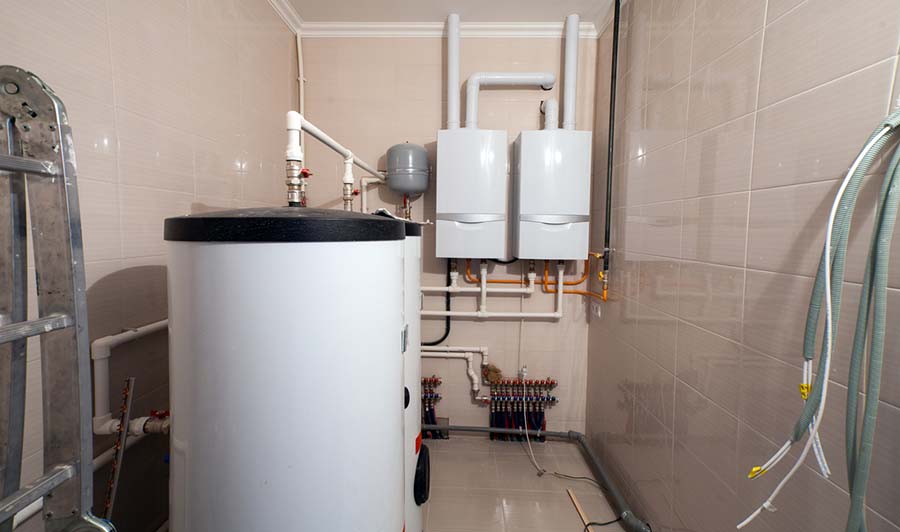Coping with the Chief Water Heater Crisis Events
Coping with the Chief Water Heater Crisis Events
Blog Article
Just how do you really feel in regards to The Importance of Water Heater Maintenance?

A hot water heater is one of one of the most essential standard appliances that can be found in a home. With hot water heater, you do not need to experience the tension of heating water manually whenever there is a requirement to take a bath, do the laundry, or the meals. However, there is always an opportunity that your hot water heater would act up similar to a lot of mechanical devices.
It is important to note any kind of little breakdown and tackle it swiftly before points get out of hand. Most times, your water heater begins to malfunction when there is a build-up of debris as a result of continual usage. As a precaution, periodic flushing of your hot water heater is suggested to stop sediment buildup and stop functional failure.
Typical water heater emergency situations as well as just how to deal with them
Inadequate warm water
It might be that the water heating system can not support the hot water need for your apartment or condo. You might update your water heating system to one with a bigger ability.
Fluctuating water temperature.
Your water heating system might start generating water of various temperatures typically ice cool or hot hot. There might be a need to change either the thermostat or the heating system of your water heater.
Dripping hot water heater storage tank.
A leaking storage tank could be an indication of deterioration. It can cause damages to the floor, wall as well as electrical gadgets around it. You might even be at risk of having your house flooded. In this scenario, you must shut off your water heater, permit it to cool off, and thoroughly seek the source of the issue. At times, all you need to do is to tighten up a few screws or pipeline connections in cases of small leaks. If this doesn't function and also the leak continues, you could need to utilize the services of a service technician for an ideal replacement.
Discolored or odiferous water
When this takes place, you require to understand if the concern is from the container or the water resource. If there is no funny smell when you run cold water, then you are particular that it is your water heating system that is faulty. The smelly water can be created by rust or the accumulation of germs or debris in the water heater tank.
Final thought
Some property owners ignore little caution as well as minor faults in their water heater system. This just leads to further damage as well as a possible total malfunction of your device. You need to deal with your water heater faults as soon as they come up to prevent more expenses and unnecessary emergency troubles.
With water heaters, you do not need to go via the stress and anxiety of home heating water by hand every time there is a requirement to take a bath, do the washing, or the meals. It may be that the water heater can not support the warm water need for your house. Your water heating system could start creating water of various temperatures generally ice hot or cold warm. If there is no amusing smell when you run cold water, then you are certain that it is your water heating system that is defective. The smelly water can be created by rust or the buildup of germs or sediments in the water heating unit container.
Common Water Heater Issues and What You Should Do
What Type of Water Heater Do You Have?
Before we begin it’s first important that you identify the type of water heater you have on your property. There are two main types of water heaters out there: conventional and high efficiency.
Both of these types of products typically use either gas or electricity to heat power. There are also solar water heaters that use a thermal collector on the roof or yard to heat the water.
While these models are not as common, they can cut heating costs in half. In this article, we will focus on conventional and high efficiency.
How Do My Electric and Gas Water Heater Work?
Though they look similar, electric and gas water heaters work very differently. It’s important to know their basic function because often problems can be specific to the heating source.
In the electric model, a thermostat on the side of the machine detects the temperature of the water in the tank. When the temperature needs to rise electricity flows to a heating element suspended in the water.
Gas models also use a thermostat device — typically with a mercury sensor at the tip and an additional sensor called a thermocouple. The thermocouple detects whether the pilot light is on and controls the flow of gas.
When the thermostat drops below the appropriate level gas is released which becomes ignited by the pilot light. The flame heats the bottom of the water tank which causes hot water to rise and cold water to drop.
This natural circulation continues until the water reaches the desired temperature. Then, the thermostat triggers the gas control valve to shut off the flow of gas.
What Are the Most Common Issues and How Do You Fix Them?
https://happyhiller.com/blog/common-water-heater-issues-and-what-you-should-do/

Do you enjoy reading up on Common Hot Water Heater Problems? Give feedback directly below. We will be pleased to know your thinking about this page. We hope to see you back again soon. Sharing is good. You won't know, you could be doing someone a favor. Thank you so much for taking the time to read it.
Trusted plumbing solutions at hand. Report this page